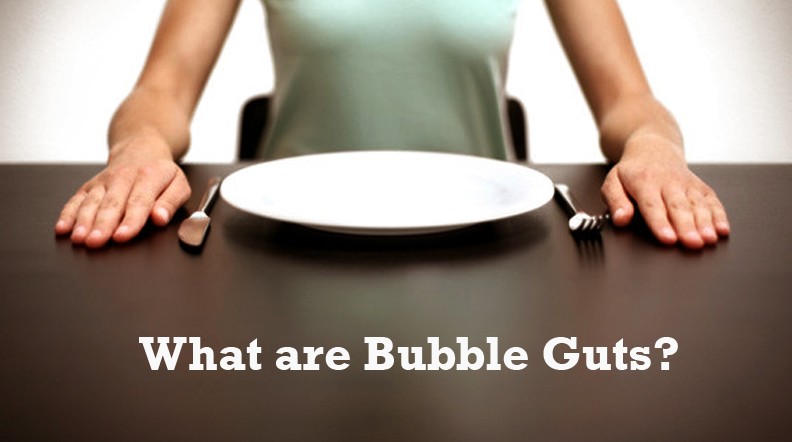What are the Causes of Bubble Guts?
Bubble guts are caused by the following:
Flatulence
This is a situation whereby there is excess gas in the stomach or intestines.
Prolonged stay of food
Usually, the food we eat has a certain period it should travel from the stomach to the anus where the remnants are excreted. However, if for some reasons the food stays longer in the large intestine (colon), the colon bacteria break it down further and make it watery. This can usually bring about noise in the gut as well. Constipation can also cause this phenomenon to occur.
Diarrhea
Bubble guts are one of the signs and symptoms of acute diarrhea. In diarrhea there is an increase in peristaltic movement which causes the rumbling sound to be heard. Bubble guts herald the onset of diarrhea and stay till the condition is finally over. The increase fluid volume in the intestines in diarrhea is also responsible for the sound.
Irritable bowel syndrome
This is a disease of the intestine characterized by frequent spells of diarrhea that alternate with constipation. There is a fast increase in peristalsis as well as a quick slow down. With diarrhea there is increased peristalsis with stronger contraction of the muscles of the intestines. As a result, some water remains unabsorbed thereby leading to the bubbling sound you hear.
Food poisoning
This results from ingesting foods contaminated by bacteria or other microorganisms. The bacteria release toxins that inflame and irritate the walls of the intestines, leading to spasms and release of fluid. The frequent movement of the intestines coupled with the excess fluid gives rise to bubble guts.
Irritants
Excessive consumption of coffee, alcohol, and tea can irritate the walls of the intestines thereby giving rise to excessive movement of the muscles. This in turn produces large bubbles and sound in the gut.
Laxatives
These are drugs or herbs taken for the purpose of inducing the movement of the bowel in order to loosen or soften stool. When taken, laxatives can give rise to excessive bowel movement thereby causing bubbles.
Excess fibers
Eating too much of foods with excess fibers also lead to increased peristalsis and production of bubbles. Examples of such foods include whole grains, wheat, brown rice, tomatoes, beans, fresh fruits, vegetables, whole wheat bread, carrots, legumes and cucumbers.
Inflammatory bowel disease (IBD)
This is a chronic disease characterized by inflammation of the walls of the intestines, which may spread to the upper part of the gut. Example of such condition is Crohn’s disease. Symptoms include diarrhea with watery, bloody or mucoid stool. It leads to a high quantity of water being left in the guts.
Treatment for Bubble Guts
The treatment of bubble guts includes the following:
Antibiotics
Since diarrhea is caused mostly by bacteria, the use of antibiotics drugs is a good way to control the condition. When the diarrhea is controlled the bubbling sound stops.
Control certain food intake
Some foods like cabbage, beans, onions, vegetables, and cauliflower are known to cause diarrhea and bubble guts. Once you reduce these foods or completely stop them, the bubbles are put under check.
Avoid aerated drinks
Some aerated drinks like tea, coffee and alcohol are notorious for causing inflammation and irritation of the bowel linings, when consumed in excess. So, to stop the bubbles, you need to minimize the consumption of such drinks or put a complete stop to their use.
Antiflatulents
These are quite helpful in eliminating gases from the guts. They can easily be purchased over-the-counter. Examples of antiflatulents include dimethicones such as Mylicon and Gas-X. The total number of tablets to be taken within 24 hours should not be more than 4.
Home remedies
Some of the remedies you easily take at home to reduce or get rid of bubble guts include:
- Chamomile tea: This tea helps in calming the hyperactive bowels thereby stopping the bubbling sounds. If you are suffering from excess bubbles, you should only take one or two cups of the tea per day.
- Peppermint tea: Peppermint contains menthol which helps in reducing the spasm of the smooth muscles of the gut thereby controlling the bubbles. Take a mug of the tea after dinner.
- Eat pumpkin: pumpkin is highly useful in getting rid of gases in the guts. This will eventually reduce the bubbles created by improperly digested food or excess fibers.
- Drink Buttermilk: This contains healthy bacteria that can assist in creating a balance in the intestinal flora. A healthier gut will lead to lesser formation of gases and bubbles.
- You can also drink yogurt as it works the same way as buttermilk.
Conclusion
Bubble guts can be quite distressing because of the embarrassment it causes as well as the abdominal pain that can be associated with the flatulence and muscle spasms. But adhering to the tips we listed in this post can be a source of relief to you.
If you do not get a positive result after using any of the suggestions we made, please see your doctor for further examination and proper management.






